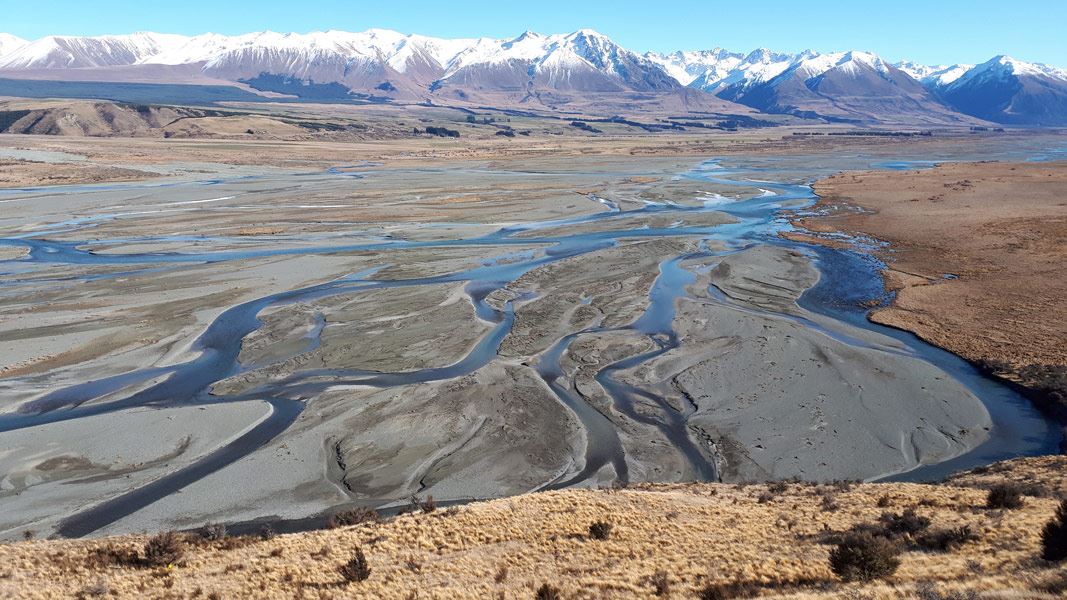Archived content: This media release was accurate on the date of publication.
Date: 24 September 2021 Source: The Office of the Minister of Conservation
The Government is investing up to $18.4 million over four years to create jobs and help restore braided river valleys, alpine and pastoral lands in the South Island as part of its Jobs for Nature programme Land Information Minister, Damien O’Connor announced.
Toitū Te Whenua Land Information New Zealand (LINZ) is funding three projects in river catchments across South Canterbury focussing on pest and weed control, and habitat restoration. DOC is supporting LINZ with the delivery of the projects.
“This is a very significant programme of work which will be a win-win for the local economy and the environment,” Damien O’Connor said.
The largest of these investments is in Te Manahuna Aoraki project in the upper Mackenzie Basin where up to $12 million is being spent improving the habitat of some of our most fragile plants and animals over four years.
“The scale of our investment is providing a massive boost for biosecurity control and monitoring in this immensely special area,” Conservation Minister Kiri Allan said.
“It will support the survival of taonga native species including kea, ngutuparore/wrybill, robust grasshopper, and the world’s rarest wading bird kakī/black stilt,” Kiri Allan said
“Work is being undertaken by a range of Te Manahuna Aoraki project partners and supports science research, restoration and recovery programmes – testing approaches which can then be applied elsewhere,” Damien O’Connor said.
The funding from Jobs for Nature for Te Manahuna Aoraki will provide around 35-40 jobs each year for four years.
LINZ has management responsibilities over extensive Crown lands within the upper Mackenzie basin, including world renowned Lake Pukaki.
LINZ is also investing in two similar Jobs for Nature projects and working alongside other agencies, iwi and community groups in nearby river valleys:
- The South Canterbury High Country project will see up to $3.45 million invested over four years to carry out land-based pest control work across the Huxley, Hopkins, and Temple valleys. This work is protecting rare, at risk and nationally vulnerable native plants and animals and providing 12-14 jobs each year for four years.
- The South Canterbury Braided River project will create 12-14 jobs each year for four years as part of an up to $2.95 million investment to carry out weed and pest control and re-establish bird habitat on islands on the Waitaki River, and the Ashburton and Stour rivers. This funding is also supporting the restoration of the Opihi River lagoon, recovering long-tailed bat habitat in the Tengawai River, controlling geese numbers in the Rakaia River catchment, and managing a range of predators on the upper Rangitata River.
A range of providers including DOC Twizel and Geraldine offices are overseeing the appointment of contractors to carry out project work on LINZ’s behalf, creating around 60 jobs each year across all three projects.
Damien O’Connor said Jobs for Nature programme will improve social, environmental, and economic outcomes for communities across New Zealand at a time when COVID-19 has disrupted the economy.
“This is an important initiative creating jobs as part of our effort to accelerate the recovery from COVID-19 and provide environmental benefits,” Damien O’Connor said.
Contact
For media enquiries contact:
Email: media@doc.govt.nz
